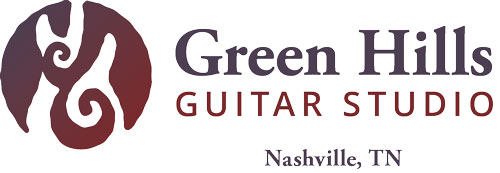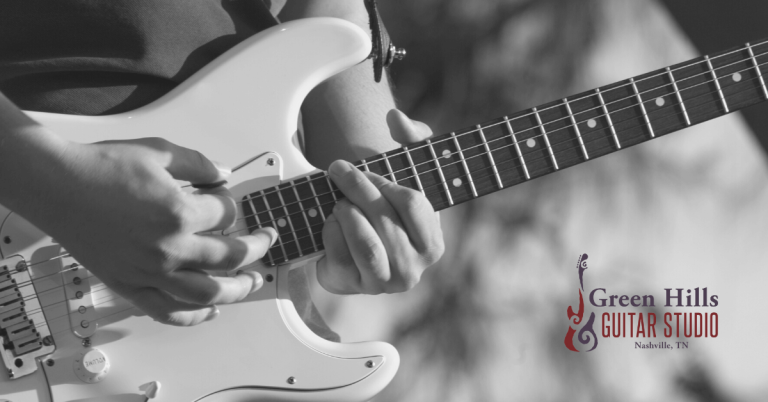Developing Musical Vocabulary for Guitar Solos
As guitarists, we often find ourselves captivated by the dazzling solos of our favorite musicians, wondering how they effortlessly navigate the fretboard with such finesse and creativity. Behind these impressive displays lies a crucial element: musical vocabulary.
In this article, we’ll explore how guitar players can develop and expand their musical vocabulary to unlock new levels of creativity and expression.
Understanding Musical Vocabulary
Just as a language comprises words, phrases, and grammar rules, musical vocabulary consists of scales, chords, arpeggios, and melodic patterns. Familiarizing yourself with these elements lays the foundation for musical fluency on the guitar.
Start by learning the essential scales and arpeggios, such as the major, minor, and pentatonic scales. It’s important that you practice scales in different positions and across the fretboard to internalize their sound and feel.
Recommended Scale Practice:
- Major Scale: One of the most fundamental scales in Western music, the major scale is used extensively in various genres. Practice it in all positions and keys across the fretboard.
- Natural Minor Scale: Also known as the Aeolian mode, the natural minor scale is the basis for minor keys and provides a sad sound. Like the major scale, practice it in different positions and keys.
- Pentatonic Scales: Major and minor pentatonic scales are versatile and widely used in rock, blues, jazz, and other genres. They offer a familiar sound and are excellent for improvisation. Practice both major and minor pentatonic scales in various positions.
- Blues Scale: Derived from the minor pentatonic scale, the blues scale adds a “bluesy” flavor with the addition of a flattened fifth (also known as the “blue note”). It’s essential for playing blues and related styles.
- Dominant 7th Arpeggios: Dominant 7th chords are prevalent in jazz, blues, and many other genres. Practice arpeggios for dominant 7th chords in different positions and inversions across the fretboard.
- Minor 7th Arpeggios: Minor 7th chords are typical in jazz, funk, and various other styles—master arpeggios for minor 7th chords to add depth to your playing.
- Major 7th Arpeggios: Major 7th chords have a smooth and sophisticated sound. Practice arpeggios for major 7th chords to expand your harmonic vocabulary.
- Diminished 7th Arpeggios: Diminished 7th chords are dissonant and are used in jazz, classical, and other genres. Practice arpeggios for diminished 7th chords to explore unique harmonic possibilities.
Learning, Transcribing, and Analyzing Guitar Solos
To truly expand your musical vocabulary and refine your sense of taste, there’s no substitute for immersing yourself in the works of great players. Delve into the solos of your musical heroes, those guitarists who inspire and captivate you.
Listen attentively to every nuance, every bend, every flourish they employ. Take the time to transcribe their solos, meticulously notating each note and phrase. Through this process, you’ll uncover the secrets of their artistry, gaining a deeper understanding of their rhythmic subtleties, articulation, and dynamic range.
“Good artists borrow, great artists steal.”
Pablo Picasso
By analyzing and deconstructing these solos, you’ll absorb new licks and patterns and internalize the essence of their improvisational prowess. This direct encounter with greatness will shape your playing, guiding you toward a higher level of expression and musicality. So, immerse yourself in the sounds of the masters, and let their brilliance inspire your creativity.
Building Repertoire: Learning Songs Across Genres
Expanding your repertoire is essential for broadening your musical vocabulary. Challenge yourself to learn songs from diverse genres such as blues, jazz, rock, and funk.
Each genre offers unique stylistic elements and techniques that will enhance your playing. Focus on mastering each song’s signature licks and chord progressions, incorporating them into your improvisational arsenal.
Exploring Advanced Techniques
To elevate your musical vocabulary, delve into advanced guitar techniques that add depth and flair to your playing. Remember to practice these techniques slowly and methodically, gradually increasing speed and fluidity as you become more comfortable with them.
Incorporating various advanced techniques into your playing will help you develop a unique and stylized approach to guitar soloing.
Recommended Techniques:
- Slides: Incorporate slides between notes to add smoothness and fluidity to your solos. Experiment with both ascending and descending slides to create different tonal effects.
- Vibrato Variations: Develop your vibrato technique by experimenting with different widths, speeds, and rhythmic patterns. A well-executed vibrato can add expressiveness and personality to your solos.
- Bends and Pre-bends: Explore bending strings to reach higher pitches, and experiment with pre-bends (bending a note before striking it) for a unique and dramatic effect. Combine bends with vibrato for added impact.
- Double Stops and Harmonics: Incorporate double stops (playing two notes simultaneously) and harmonics (natural or artificial) to create rich, layered sounds. Experiment with different intervals and positions on the fretboard to find interesting combinations.
- Picking Techniques: Whether you’re shredding through lightning-fast runs or playing soulful melodies, becoming proficient with different picking techniques will help you play with more intention.
- String Skipping: Challenge yourself by incorporating string skipping into your solos to create unpredictable, angular melodic lines. This technique can add excitement and complexity to your playing.
- Intervallic Jumps: Instead of playing linear scale runs, explore intervallic jumps and leaps across the fretboard to create more dynamic and unpredictable melodies. This can add tension and excitement to your solos.
- Chordal Soloing: Experiment with incorporating chord voicings and arpeggios into your solos to create harmonic richness and texture. This approach can add depth and complexity to your improvisations.
Jamming with Other Musicians
Jamming with other musicians is a fantastic way to develop your musical vocabulary in a collaborative setting.
Whether with a band, a friend, or at an open jam session, improvising alongside fellow musicians allows you to exchange ideas and learn from each other’s playing styles.
Embrace the spontaneity of jam sessions, and don’t be afraid to take risks and experiment with new phrases and improvisational techniques.
The Coda
Developing a rich and varied musical vocabulary is a journey that requires dedication, patience, and a willingness to explore new horizons.
By incorporating the strategies outlined in this article into your practice routine, you’ll embark on a rewarding journey of musical discovery.
Remember, guitar mastery is not merely about technical proficiency but conveying emotion and expression through playing.
So, pick up your guitar, immerse yourself in the language of music, and let your creativity soar.
Ready to Take Your Playing to the Next Level?
If you’re eager to develop your musical vocabulary further and refine your guitar skills, consider signing up for private lessons with Green Hills Guitar Studio. Located in Nashville, TN, we offer personalized instruction tailored to your individual goals and aspirations.
Whether you are a beginner or an experienced guitarist, our expert instructors will help you unlock your full potential and unleash your musical creativity. Contact us today to schedule a guitar lesson and embark on a transformative musical journey.






